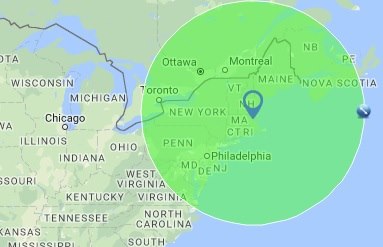How are you traveling home this break? Have you thought about the environmental impacts of your holiday travel?
Here are a few tips to make your travel more sustainable:
1. Prepare before you go
Before you go make sure you unplug all electronics, close all windows, and turn down the heat. Also, try to finish any leftovers and take with you any perishable foods, so they don’t spoil while you’re gone.
2. Take public transportation
If you are not traveling too far, consider taking public transportation like buses and trains. Trains in the Northeast run on electricity and have lower carbon emissions. According to a report from the Union of Concerned Scientists, passenger trains produce 0.42 pounds of CO2 per passenger mile, compared to driving which produces 1.08 pounds of CO2 per passenger mile. Busses are even more efficient, producing 0.17 pounds of CO2 per passenger mile.
3. Carpool
If you live close enough to drive home, consider carpooling. Talk to your friends who live nearby and coordinate rides. Or, if you live in Massachusetts, Nuride is a great way to coordinate carpooling across the state.
4. If you are going 500 miles or less drive don’t fly
It is more efficient to drive, carpool, or take public transportation if you’re traveling 500 miles or less. Beyond those distances, taking a nonstop flight is the most efficient way to travel.
5. Buy a carbon offset
If you live farther away and are flying home this break, consider buying a carbon offset for your travels. When you purchase one, offered by Delta, United Airlines, and other airlines, the airlines use that money to plant trees that sequester CO2 from the atmosphere.
6. Veg out
Did you know that becoming a vegetarian or vegan could cut your carbon footprint by half? A new report from the journal Climate Change found that cutting meat out of diets can drastically reduce an individual’s carbon footprint. If you’re not ready to eliminate all meat from your diet, then consider eating less meat. When traveling you’re likely producing more carbon emissions than normal, so one way to cut back on those emissions is to eat less meat!
7. Think about your impact
What is most important is that you are cognizant of how your actions have environmental impacts. One person thinking about sustainability won’t fix climate change, so share with those around you how you take steps to live a sustainable life. While you can only control your own actions, you can influence the actions and behaviors of others. This winter break lets all think about how to be more mindful of sustainability.
Want to read more about sustainable travel?



Leave a Reply